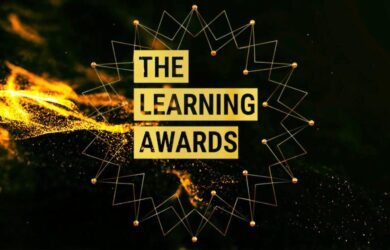Toni Morrison is a favorite author of mine, who recently brought to my mind one of life’s fundamental questions: “Does the work that I do define me? Or is the ‘real me’ the person I am outside of my work?”
What Defines You?
In a recent article that she wrote for The New Yorker, Morrison argues that, “You are not the work you do; you are the person you are.”
But, philosopher Martin Buber emphatically disagrees. He states that, “I am what I do.” Could a philosopher say anything else?
Christian Bale’s Batman agrees with the philosopher, stoutly affirming (in Batman Begins) that, “It’s not who I am underneath but what I do that defines me.”
Given that we work about half the waking hours of our four most active decades, it’s easy to see where Buber and Batman are coming from.
Are Your Actions a Cause Or an Effect?
The difference between these two opinions can also be said to be the difference between cause and effect.
“I am what I do” essentially means that my actions cause me to be who I am. But if “I do what I am,” then my actions are an effect of the person I have become.
But how does this translate to the work we do? Does our profession influence our personality or, conversely, do we influence our profession?
To answer this question, it’s important that we define what we mean by “profession” here. According to Mind Tools (which refers to Merriam-Webster’s definition) a profession is, “a calling requiring specialized knowledge and often long and intensive academic preparation.”
The key word in this definition is “calling.” Like a religious leader, the true professional is driven by a strong, inner impulse to learn and master the intricacies of his work. As for me, whether or not my “calling” is divinely inspired is a question I think I will defer to the next life.
Picking the Right Profession
Given this definition, it’s important that we choose our profession wisely, because, ultimately, it will become both the cause and effect of who we are and what we do.
So, lets take a look at six important questions, taken from the tiny buddha® blog, that you can ask yourself to help you to clarify what profession will best suit you:
- What do you absolutely love in life? Since the majority of your life is spent at work – rightly or wrongly – many people will define you by it. So, yes! Choose a profession that fuels your passions.
- What are your greatest accomplishments in life so far? Life’s challenges are hard enough without the added pressure of having a job that you really don’t like or want. Know your strengths, interests and weaknesses, and then consider choosing a profession that plays to these.
- What would you stand for if you knew no one would judge you? Realize that people will judge your professionalism! Are you prepared to take the difficult decisions and stands that can come with certain professions?
- If your life had absolutely no limits and you could have it all and do whatever you wanted, what would you choose to have and what would you choose to do? Think about the profession that you would choose if you knew you would be successful in it. This question will help you to think about what you truly desire. Knowing this, think about the concrete steps you can take to make your dream job a reality.
- What would you do if you had one billion dollars? Your answer will expose whether your professional interest is a true “calling” or simply a means of making money.
- Who do you admire most in the world? What you admire in them is likely a quality that you already share with this person, or which you aspire to have. So, work on building up these qualities, as doing so will likely get you closer to achieving your career goals.
Pursue Your Professional Passions
Now let’s return to Toni Morrison’s story for a moment. As a young girl in the 1940s, she explains how she had a house-cleaning job for a well-to-do white woman. Her pay was an abysmal $2 a day. Her rewards were some additional income to purchase snacks and toys, and the satisfaction of contributing to her household’s bills.
As she continues to sharpen her skills, however, her greedy employer demands that she take on extra responsibilities and do more work – without a raise, of course.
So, she does what any of us would do – she complains to her parents and, in particular, her dad. No sympathy there, but he does give her a great piece of advice: “Your life is with us, your family. You are not the work you do; you are the person you are.”
If you, like Toni, are unfortunate enough to find yourself in a job that you have begun to resent and dislike, perhaps these words can give some comfort. And remember, however hard it is, try to be grateful for the things that you do have in your life. In the meantime, pursue the profession you are passionate about, and that best reflects the person you wish to become.





Comments
Michelle & Anthony Consulting says
8 years agoThanks for sharing!
Midgie Thompson says
8 years agoGreat that you enjoyed the article. It certainly gave me some food for thought to reflect on regarding who I am and the work I do. Happy to say that they are in alignment!
Rafael Sefstrom says
4 years agoThat's quite a good article, thank you.
The part that appeals to me the most is the message that was given: "Be grateful about what you do but don't allow it to define who you are."
Midgie Thompson says
4 years agoThanks Rafael for sharing your thoughts. I agree that we should not be defined by the job we do yet rather the person we are and how we are with others.